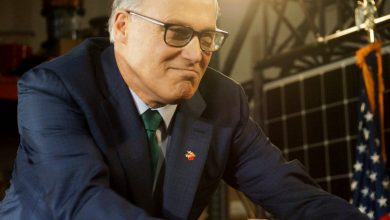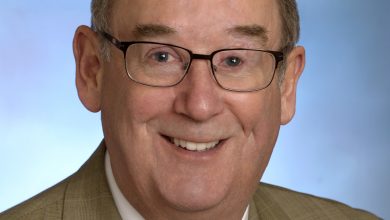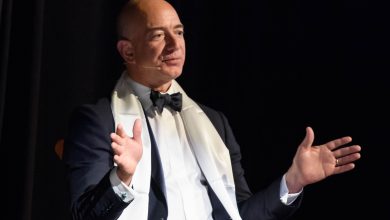Snopes on the state of news, Facebook and the 2020 election: ‘It’s going to be a mess’
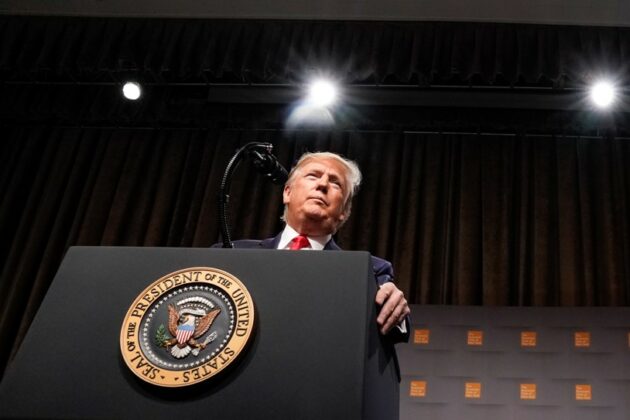
Disinformation campaigns are expected to be just as pervasive in 2020 as they were in the 2016 presidential election, and potentially more insidious because of the media spotlight on them. That’s according to fact-checking organizations like Seattle-based Snopes.
They say it’s more important than ever to have reliable fact-checkers, but it’s also more difficult than ever to run a fact-checking business.
That’s why Snopes launched a membership program and crowdfunding platform this month. Snopes supporters can now become members by donating $30 a year to help the organization stay afloat and grow.

Snopes had once hoped to scale with financial support from Facebook but the partnership between the two withered. Snopes CEO and founder David Mikkelson says Facebook was unresponsive to the fact-checking organization’s concerns and allowed the partnership to fizzle out earlier this year with little communication.
“It wasn’t really a partnership in any real sense of the word and caused, for us, more problems and potential liabilities than it was worth to us to participate,” he said.
But Mikkelson said there are some benefits to cutting ties with Facebook.
“You can’t really be working cooperatively with an entity that you also should be investigating,” Mikkelson said. “It just doesn’t work that way in the journalistic sphere.”
The consequences of Snopes’ independence became apparent this month when the organization uncovered a campaign by The Beautiful Life, a.k.a. The BL, to promote pro-Trump material on Facebook and amplify its reach through fake accounts.
Snopes first began reporting on The BL in October and notified Facebook of its activities. But Mikkelson said the social media giant was largely unresponsive.
In December, Facebook banned 610 accounts, 89 Facebook Pages, 156 Groups and 72 Instagram accounts, mostly associated with The BL. Facebook said an internal investigation led to The BL network’s expulsion:
Although the people behind this network attempted to conceal their identities and coordination, our investigation linked this activity to Epoch Media Group, a US-based media organization, and individuals in Vietnam working on its behalf. The BL-focused network repeatedly violated a number of our policies, including our policies against coordinated inauthentic behavior, spam and misrepresentation, to name just a few. The BL is now banned from Facebook.
Facebook did not mention Snopes in its announcement. Asked to comment on the role Snopes’ investigation of The BL played, Facebook directed GeekWire to a tweet from the company’s head of security policy Nathaniel Gleicher.
I know there have been some questions about how this investigation got started. We began investigating TheBL in late July based on our own internal analysis. Their deceptive behavior accelerated in August. Our automated systems were already continuously removing violating assets,
— Nathaniel Gleicher (@ngleicher) December 20, 2019
The BL drama is just one of many attempts to spread disinformation ahead of the 2020 election, according to Mikkelson and Alex Kasprak, the reporter behind Snopes’ investigation. GeekWire spoke with the two of them about how Snopes is preparing for the 2020 election and the state of news and information. Continue reading for our edited Q&A with them.
GeekWire: What has been the biggest surprise for Snopes over the past year?
Mikkelson: It’s kind of a tough one because we’ve been doing this so long. It’s kind of hard to be surprised by anything. Just perhaps the pervasiveness of it. I would say one of the biggest surprises, and it ties into today’s story, is how despite how much publicity and effort has been dedicated to tackling disinformation, especially foreign influence and foreign-run disinformation aimed at disrupting our information sphere and political process, just how completely prevalent it remains out there and how frustratingly difficult it can be to get the platforms that are facilitating it to do anything about it.
GW: How would you characterize the state of news and information today?
Mikkelson: In some ways it’s perilous … it’s becoming increasingly untenable for digital publishers to rely on advertising for all or most of their revenue. Just too many publishers competing for the same pie, which is also being consumed by just as many scammers and bad actors who are siphoning away ad dollars from legitimate news outlets. Also the ad industry is becoming increasingly consolidated in the hands of a few tech giants, like Google and Facebook.
We, and everyone else, have to look to something like our just-launched membership model and try and raise money through memberships and subscriptions and merchandising. It’s also become quite evidently perilous to be relying on large social media platforms for distribution. There are too many publishers who have already been bitten by that by going whole hog on using Facebook, or Instagram, to get their material out to an audience, only to find that the platform changes their policies, or changes their algorithms, and suddenly their traffic drops to 5 percent of what it was. It’s a tough challenge for all of us who are doing this work just to survive in an economic sense, much less grow and thrive as we really need to do to tackle all the challenges in the current information sphere, and the rampant disinformation and misinformation.
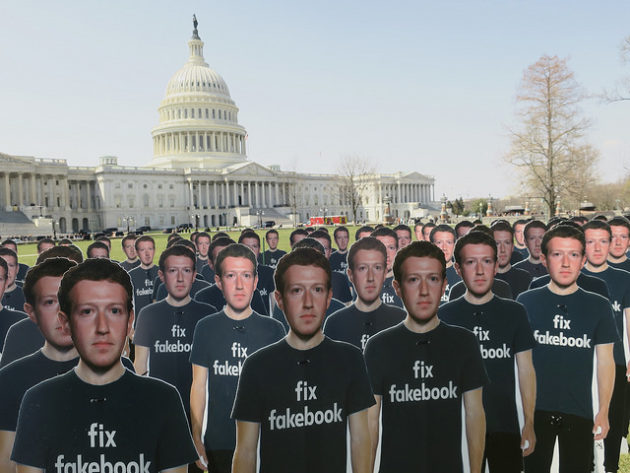
GW: What happened to Snopes’ partnership with Facebook?
Mikkelson: The short answer is basically that we repeatedly raised a number of issues with them about the partnership, and the terms of working with them, and they blew us off. So it wasn’t that we ever told them, “we won’t work with you anymore.” We just raised some issues that we wanted addressed. They said they’d get back to us, and we never heard from them again.
In a more specific sense, it became quite evident to us that actually limiting or eliminating the proliferation of misinformation on Facebook was not the priority of the Facebook fact-checking partnership. It wasn’t really a partnership in any real sense of the word and caused, for us, more problems and potential liabilities than it was worth to us to participate.
Kasprak: Part of it was we felt as though they weren’t taking it seriously. We, as the writers, viewed it more as a PR effort. It didn’t seem like a serious effort being put into it and … from a conflict of interest standpoint, the problem of being paid by an entity that we wanted to investigate, and wanted to point out where they’re failing in terms of disinformation. While it was a financial hit, it allowed us more freedom journalistically to pursue stories against Facebook essentially.
Mikkelson: You can’t really be working cooperatively with an entity that you also should be investigating. It just doesn’t work that way in the journalistic sphere. To use one example, Facebook is a multibillion-dollar corporation and they’re essentially paying us, and others, a relative pittance to do no more than say 30 fact checks a month. If you let us do hundreds of fact checks for you, and paid us 10 times as much, it would be a win-win all around. Facebook can get a lot more misinformation off your network, you help finance the growth of fact-checking and journalism, and they just weren’t interested in that. It really calls into question what their motives for running the so-called partnership are.
GW: Facebook banned a fake news account, The BL, following your reporting. What was The BL up to and how did you discover it?
Kasprak: The BL stands for the “Beauty of Life” and it is ostensibly just a regular media outlet that has a pro-Trump editorial strategy. But right off the bat, we found a lot of things that were suspicious. There were a lot overlapping employees or former employees of The Epoch Times that worked at The BL. The server that we identified as operating on The BL network was registered to a company called Epoch Times Vietnam. That piqued our curiosity.
Doing more digging, looking into the various pages that were sharing the content, it became clear that it was just this massive army of fake profiles creating deceptive groups that were being used essentially to make it look like their content was popular. The content itself was largely indistinguishable from Trump campaign ads, as well. Our first reporting alleged this connection between the broader Epoch Times group … we discovered those links and then we discovered all of these profiles. Essentially since October, we’ve been on a mission to get Facebook to acknowledge that this was even happening. We sent them tons of emails … we asked if this was coordinated inauthentic behavior and we didn’t get an answer on that. We only got one response and that was just, “we’re looking into this.” That was the case up until today, when they banned the whole network. They actually put out an embargoed press release about it and they didn’t give it to Snopes. They gave it to other reporters.
Mikkelson: It’s not just that they gave the story to other news outlets but they made no mention of us whatsoever.
GW: Why do you think that is?
Kasprak: If I may be candid, I think they are reticent to give credit to a company that left them and publicly scorned them from the fact-checking program.
GW: It seems like all of this gets to a larger issue of Facebook’s role in the spread of information and news. What do you think that says about the moment that we’re in now and the year ahead?
Kasprak: It’s going to be a mess. The scale of the problem is so much larger than Facebook is willing to recognize or act on. They said they found The BL network in July. It took them that long to confirm what we figured out in probably 24 hours. That’s troubling, I think.
GW: Is it just Facebook?
Kasprak: No, but in terms of the control that Facebook has over what people see in their news feeds and what media outlets get published, they’re probably the biggest threat.
Mikkelson: We’ve seen similar activity on other platforms. It’s just given the size of our staff at the moment, there’s only so much we can cover at any one time. Especially something that requires a lot of investigation. We need to go after what’s the biggest and most prominent and having the largest effect.
GW: How is Snopes preparing for the 2020 election?
Mikkelson: We launched our membership platform earlier in the week. It’s a multi-pronged effort. One aspect of it is trying to raise the revenue that we need to continue operating and beyond that, to grow and enhance and expand our capabilities. You’ve seen what someone like Alex can do just working with one or two other people. Imagine if we could do even more of that if we had the resources and staff to be doing that at a larger scale.
We certainly expect that 2020 is going to be an even worse replay of 2016, with the attempts to influence events surrounding the election which will be, quite likely, more furtive and more concealed and more obscured, because everyone is on to the obvious shenanigans that were going on last time. We really need to be ramped up and prepared to do even more fact-checking as things pop up and proactively investigate them and get them stopped before they get a foothold. With The BL, we didn’t stop them from getting a foothold but I think we did a good job of stopping them from gaining an even larger foothold and getting [them] derailed before the election really ramps up.
GW: What are you most concerned about going into the election year?
Kasprak: It’s simple. I think just the inability to keep up with either the technologies that are being used to propagate this information or to a certain extent, even rein in on things like so-called satire which is sometimes used as a guise to spread fake news and claim it’s a joke later. There’s a lot of disingenuous ways to push arguments and I think Facebook and pretty much everyone is unprepared and unable to handle the scope of that problem.
Mikkelson: My biggest concern is probably the maxim, “generals are always preparing to fight the last war rather than the next one.” I’m concerned there’s a whole lot of people who may not have learned the lessons of the last election, and are just expecting to see, and preparing for, exactly the same thing, and not really prepared to recognize and counter the shifting techniques, the much more subtle ways that influencers will use to get misinformation and disinformation out during this cycle.
GW: What one takeaway do you want to leave readers with?
Kasprak: I would say check your sources and if something feels like it speaks to you so well that you just need to reshare it, be extra cautious of whatever that is because it could be somebody trying to manipulate you.
David: It’s tough to pick one from so many but I suppose it would be rather common and long-offered advice that everyone out there really needs to be looking to more than one source. Not to mention check your sources, but don’t just be checking [one] source, even if it’s us, or some other fact-checker, some other respected news organization. Nobody’s infallible. Something that is truly important for you to know, and truthful, is going to pop up in more than one place. Rarely is it coming out of one obscure blog or partisan website. It may start there but it won’t end there. People really need to be more aware and availing themselves of the multiplicity of sources out there.
Conclusion: So above is the Snopes on the state of news, Facebook and the 2020 election: ‘It’s going to be a mess’ article. Hopefully with this article you can help you in life, always follow and read our good articles on the website: Ngoinhanho101.com

